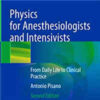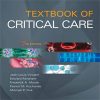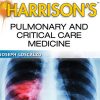When Exercise Comes to the Hospital’s ICUs
undark.orgEven short hospital ICU stays can cause lasting problems for patients. Can early mobility and exercise help?
Apna Kudchadkar still remembers the morning in 2010 that shaped the trajectory of her scientific research. She was in the midst of a medical fellowship, listening carefully to the hospital’s overnight staff, as they summarized the progress of each child in the pediatric intensive care unit. The staff would comment on how well the patients had slept the night before. “In that moment, I realized that we weren’t really talking about sleep, per se, but really sedation,” says Kudchadkar.
While the terms are sometimes used interchangeably in intensive care, she says, they are not the same. Among other things, real sleep is restorative; upon waking, patients feel energized. The disruptive effects of sedation, Kudchadkar suspected, could have lasting implications for a person’s recovery and long-term health.
Knowing that physical activity enhances sleep, Kudchadkar wondered: Would her young patients do better if they were encouraged to move during their stay in intensive care?

















